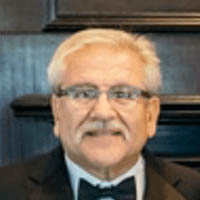Verona Criminal Lawyer, Pennsylvania
Sponsored Law Firm
-
 x
x

Click For More Info:
-
Law Office of Mark S. Guralnick
55 Madison Avenue 4th Floor Morristown, NJ 07960» view mapCriminal Defense Law Dedicated. Fearless. Successful.
Mark S. Guralnick and his legal team have helped clients throughout the USA and across the world by applying unparalleled dedication and hard work to each case.
800-399-8371
Jeffrey S. Weinberg
✓ VERIFIEDCriminal, Accident & Injury
Jeffrey Weinberg is a practicing lawyer in the state of Pennsylvania. Mr. Weinberg received his J.D. from Duquesne University.
 Mark Guralnick Morristown, NJ
Mark Guralnick Morristown, NJ AboutLaw Office of Mark S. Guralnick
AboutLaw Office of Mark S. Guralnick Practice AreasExpertise
Practice AreasExpertise

